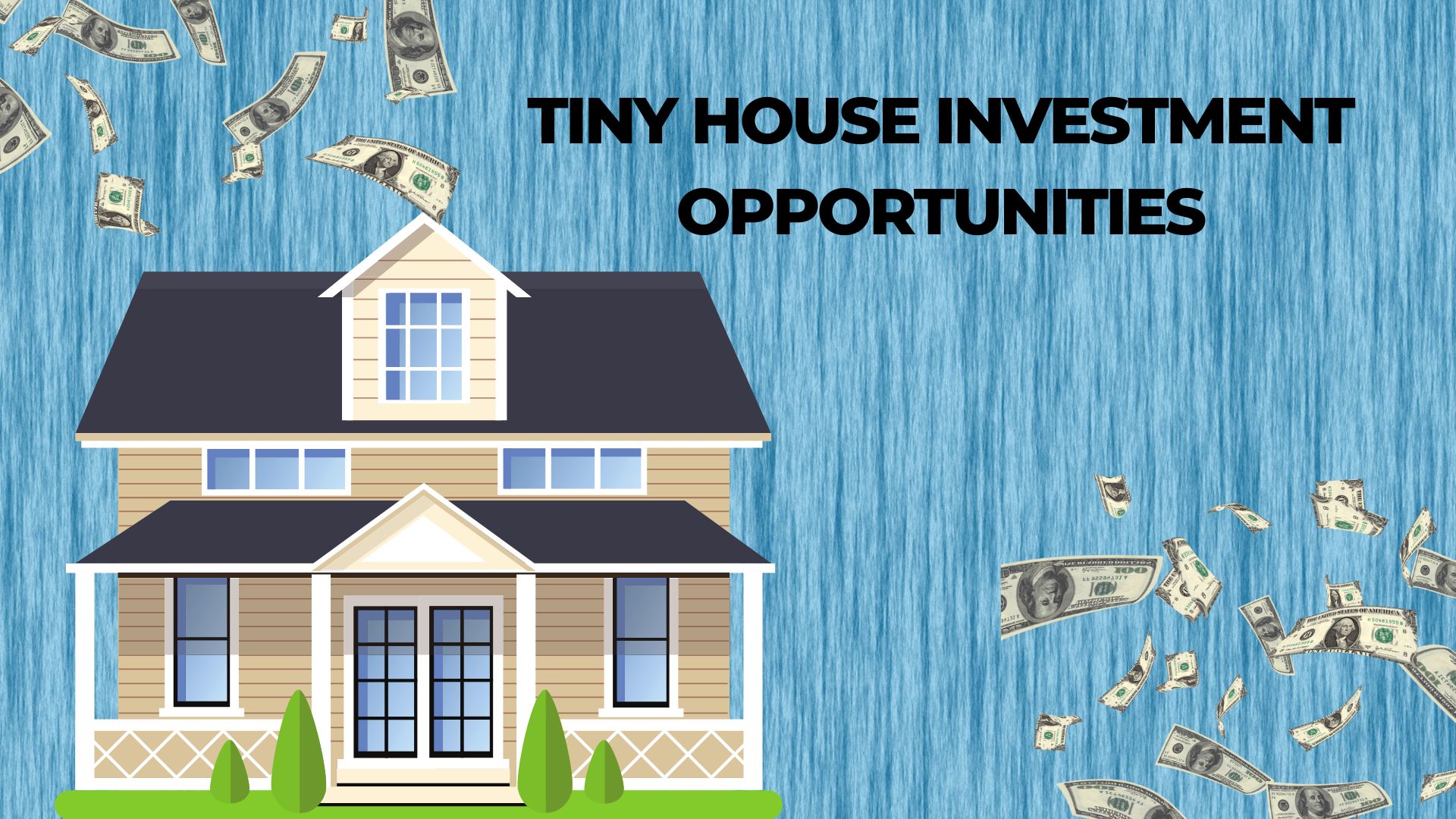Tiny house investment opportunities can be profitable, especially in popular tourist destinations or areas with high demand for unique accommodations, due to higher nightly rates and occupancy. However, it’s important to consider factors such as operating costs, effective marketing, and loan qualifications for tiny homes.
Despite their potential profitability, the market for tiny homes is smaller compared to full-size family homes, and if built on wheels, they may depreciate in value. Nonetheless, for those interested in investing in tiny houses, there are resources available such as financing options and guides on listing them on platforms like Airbnb.
Proper research and understanding of the market and regulations are crucial to ensure a successful investment in tiny houses.
The Growing Popularity Of Tiny Houses
Investing in tiny houses is becoming increasingly popular due to several advantages. Tiny houses offer a more affordable housing option, allowing people to save money on both building and maintenance costs. Additionally, they provide the opportunity for a minimalist lifestyle, which is increasingly sought after in today’s society. The market demand for unique accommodations is also on the rise, with more people looking for alternative and sustainable living options. Tiny houses, with their compact design and eco-friendly features, fulfill this demand perfectly. Moreover, in popular tourist destinations, tiny houses can be profitable due to higher nightly rates and occupancy. However, it’s important to consider operating costs, effective marketing, and the local regulations and permits required for renting out tiny houses. With careful planning and research, investing in tiny houses can indeed be a lucrative opportunity.
Different Ways To Generate Income From Tiny Houses
Discover profitable ways to generate income from tiny houses. Explore investment opportunities such as renting out tiny houses, creating a tiny house hotel, or building a tiny house community. Consider factors like operating costs, effective marketing, and loan options to make the most of your tiny house investment.
| Different Ways to Generate Income from Tiny Houses | |
|---|---|
| Renting Out Tiny Houses | Building a Tiny House Community |
| Renting out tiny houses can be a profitable venture, especially in popular tourist destinations or areas with high demand for unique accommodations. By offering higher nightly rates and maintaining high occupancy, you can maximize your earnings. However, it’s important to consider the operating costs involved, such as maintenance, utilities, and cleaning. Additionally, effective marketing strategies are crucial to attract potential guests. | Building a tiny house community can also be a great way to generate income. By creating a community of tiny houses, you can offer long-term rentals to individuals looking for affordable housing options. This can be particularly appealing to those who want to downsize or live a minimalist lifestyle. However, it’s important to research local regulations and zoning laws before starting your community. |
| In conclusion, renting out tiny houses and building a tiny house community are two different ways to generate income from tiny houses. Each option comes with its own set of considerations and potential benefits. By carefully planning and executing your strategy, you can make the most of the investment opportunities presented by tiny houses. | |
Factors To Consider For A Successful Tiny House Investment
|
Operating costs and effective marketing: When considering a successful tiny house investment, it is important to take into account the operating costs associated with maintaining the property. This includes expenses such as maintenance, utilities, and cleaning. Additionally, effective marketing strategies are crucial to attract potential renters or buyers for the tiny house. Utilizing platforms like Airbnb and other rental websites can help increase visibility and occupancy rates. |
|
Financing and loan options: Traditional mortgage loans may not be readily available for tiny homes due to their smaller size and non-permanent nature. However, there are alternative financing options such as personal loans or specialized tiny house loans that cater specifically to this niche market. It is important to research and explore different loan options to find the best fit for your investment. |
|
Resale value and potential return on investment: It’s crucial to consider the potential resale value and return on investment when investing in a tiny house. While tiny homes may depreciate in value over time, factors such as location, demand, and market trends can greatly impact the potential profit earned from a resale. Conducting thorough market research and assessing the potential for future demand can help determine the long-term viability of the investment. |
Frequently Asked Questions On Tiny House Investment Opportunities
Are Tiny Houses Good Investments?
Tiny houses can be good investments, especially in popular tourist destinations or areas with high demand for unique accommodations. They can generate profit through higher nightly rates and occupancy. However, it’s important to consider operating costs, effective marketing, and potential difficulties in getting approved for loans or selling the tiny house.
Are Tiny Homes Profitable?
Tiny homes can be profitable in popular tourist destinations or areas with high demand for unique accommodations. However, it’s important to consider operating costs like maintenance, utilities, and effective marketing. Plus, tiny homes can depreciate in value, especially if built to be mobile.
Is It Hard To Get Approved For A Tiny Home?
It can be challenging to get approved for a tiny home due to higher minimum loan amounts and the requirement for a permanent foundation. Many lenders disqualify tiny homes from traditional mortgage loans.
Are Tiny Houses Hard To Sell?
No, tiny houses are not hard to sell. They can be a profitable investment, especially in popular tourist destinations or areas with high demand for unique accommodations. However, effective marketing and considering operating costs like maintenance and utilities are essential.
Financing options may vary as lenders may have different requirements.
Conclusion
Tiny House Investment Opportunities offer potential for profitable returns. With the rising trend of minimalist living and the demand for unique accommodations, investing in tiny houses can be a lucrative venture. However, it’s crucial to consider factors such as operating costs, effective marketing, and local regulations.
While tiny homes may depreciate in value, their profitability lies in the ability to attract guests and charge higher nightly rates. Ultimately, investing in tiny houses can provide a viable investment opportunity for those willing to navigate the unique challenges of this market.

Ron D. Palermo is a distinguished figure in the financial landscape, specializing as a strategic investment expert. With a comprehensive background in finance and a keen analytical mindset, Ron D. Palermo has carved a niche as a trusted advisor in the dynamic field of strategic investments. Her career is marked by a strategic approach to investment decisions, where she combines in-depth market analysis with a forward-thinking perspective. Ron D. Palermo excels in identifying opportunities that align with overarching financial goals, whether in traditional markets or emerging sectors.
Known for her ability to navigate complexities and anticipate market trends, Ron D. Palermo provides invaluable insights to individuals and organizations seeking to optimize their investment portfolios. Her strategic investment expertise extends beyond short-term gains, focusing on creating robust, long-term financial strategies that align with clients’ unique objectives. As a thought leader in strategic investments, Ron D. Palermo continues to shape the conversation around effective investment planning and risk management, making her a go-to expert for those looking to navigate the intricacies of the financial landscape.


